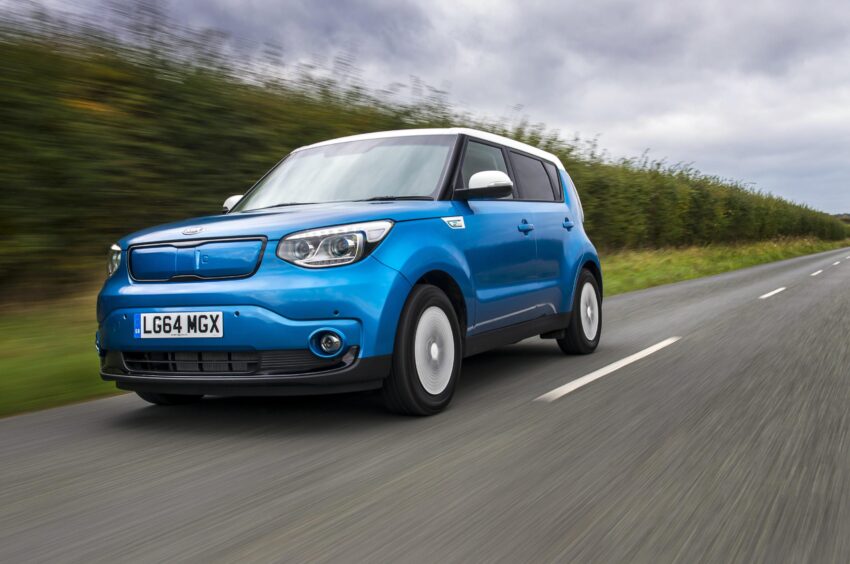Buying a used car can be an exhilarating journey filled with possibilities. Whether you’re searching for that perfect vehicle to fit your lifestyle or simply trying to find the best deal, the options are plentiful. But should you turn to a dealer or take the leap with a private seller? Each route offers its own unique set of advantages and challenges.
Navigating this decision involves more than just picking out a color or model; it’s about understanding what works best for your needs and budget. Let’s dive into the benefits of buying used cars, explore the key differences between dealers and private sellers, and help you make an informed choice that you’ll feel good about for years to come. Your ideal ride awaits!
The benefits of buying a used car
Buying a used car can be a smart financial move. The most obvious benefit is the cost savings. Used cars usually come with a significantly lower price tag compared to new ones, allowing you to stretch your budget further.
Depreciation hits hard in the first few years of ownership. When you buy used, someone else has already absorbed that initial loss in value. This means you’re getting more bang for your buck.
Insurance rates are often cheaper for used vehicles too. Lower premiums can lead to additional savings over time, which adds up nicely.
A wider selection is another advantage. You have access to various makes and models across different price ranges, making it easier to find exactly what suits your preferences.
Plus, many certified pre-owned programs offer warranties similar to those found on new cars—providing peace of mind without breaking the bank.
Differences between buying from a dealer and private seller
Buying a used car from a dealer and purchasing from a private seller can lead to distinctly different experiences. Dealers often offer certified pre-owned vehicles, providing peace of mind with warranties and inspections.
On the other hand, private sellers usually list their cars at lower prices. This can be appealing if you’re looking for better deals without the dealership markup.
Dealers typically have more extensive inventories. If you’re searching for specific models or features, this variety might save time.
Conversely, negotiating with a private seller may feel more personal. You could build rapport that leads to better pricing options.
While dealers handle paperwork professionally, private sales might require extra diligence on your part regarding title transfer and payment methods. Each option has its unique traits that cater to different buyer preferences.
Pros and cons of buying from a dealer
When you buy from a dealer, one significant advantage is the convenience. They often have a wide selection of vehicles in one location, making it easy to compare options.
Dealers typically provide warranties and service plans. This can give buyers peace of mind about potential repairs down the road.
On the flip side, prices at dealerships may be higher than those offered by private sellers. The added overhead can make used cars more expensive.
Negotiation might also feel different at a dealership. Salespeople are trained negotiators and may push for better margins on sales.
Additionally, dealers sometimes focus on selling newer models with less mileage. If you’re looking for older or unique vehicles, you might not find what you want in their inventory.
Pros and cons of buying from a private seller
Buying from a private seller can feel like a treasure hunt. Often, you might snag a better price compared to dealerships. Sellers may be more willing to negotiate, giving you room for haggling.
However, the experience can come with risks. Private sellers typically don’t offer warranties or guarantees, meaning if something goes wrong after purchase, you’re on your own.
Also, there’s usually less documentation involved when buying privately. You’ll need to be diligent about checking the car’s history and condition yourself.
Another point is that financing options are often limited through private sales. Most sellers expect cash or direct payment methods rather than offering loans.
It’s essential to weigh these factors carefully before making your decision on whether to buy from an individual seller or go through a dealership.
How to determine the best option for you
Determining the best option between a dealer and a private seller hinges on your specific needs and circumstances. Start by assessing your budget. Dealers often have higher prices due to overhead costs, while private sellers may offer more flexibility.
Consider the type of vehicle you want. If you’re looking for a certified pre-owned car with warranties, dealers are typically the way to go. They can provide peace of mind with their quality assurance.
On the other hand, if you’re seeking a rare model or vintage gem, private sellers might be holding exactly what you need.
Think about your comfort level in negotiating as well. Some buyers thrive in haggling scenarios with individuals but prefer structured negotiations at dealerships.
Reflect on how much time you’re willing to invest in this process. Private sales can take longer due to inspections and paperwork compared to streamlined dealership transactions.
Tips for negotiating with dealers or private sellers
When negotiating, always do your homework. Research the car’s market value using reliable resources like Kelley Blue Book or Edmunds. This knowledge gives you confidence and a solid starting point.
Approach the seller with respect but be ready to advocate for yourself. Start with a reasonable offer that leaves room for negotiation.
Be aware of the emotional factors involved; sellers often have personal attachments to their vehicles. Acknowledging this can foster goodwill during discussions.
Stay calm and patient even if negotiations become tense. If you’re feeling pressured, it’s okay to walk away—this shows you’re serious about finding the right deal.
Don’t hesitate to ask questions about maintenance history or any concerns you might have about the vehicle. Open communication can lead to better understanding and improved offers on both sides.
The importance of getting a vehicle history report
When considering a used car, obtaining a vehicle history report is essential. This document reveals crucial information about the car’s past. You can uncover any accidents, title issues, or odometer discrepancies.
A comprehensive report provides insight into previous ownership and service records. Knowing how well the car has been maintained can help you make an informed decision. A well-documented maintenance history often indicates that the vehicle was cared for properly.
Additionally, these reports usually include details on recalls and safety inspections. If there are unresolved issues, it’s better to know before making a purchase.
By investing in a vehicle history report, you’re protecting yourself from hidden problems that could lead to costly repairs later on. It adds an extra layer of security and confidence in your buying journey as you navigate through options available to you.
Final considerations before making your purchase decision
Before you seal the deal on that used car, take a moment to reflect. Think about your budget and how it fits into your financial plans. Are you prepared for additional costs like insurance, maintenance, and taxes?
Consider the vehicle’s condition as well. A thorough inspection can uncover hidden issues that might lead to costly repairs down the line.
Research is key. Look up reviews of both the car model and seller—whether it’s a dealer or private individual—to gauge reliability.
Don’t rush into any decision just because you’re excited. Take time to weigh all options carefully; this ensures you’re making an informed choice rather than a hasty one.
Trust your instincts during negotiations. If something feels off or too good to be true, don’t hesitate to walk away. Your ideal car should bring joy—not stress or regret.
Conclusion
When deciding whether to buy a used car from a dealer or a private seller, several factors come into play. Both routes have their unique benefits and drawbacks. Dealers often provide warranties, financing options, and more structure in the buying process. On the other hand, purchasing from a private seller can lead to better deals if you’re willing to invest time.
Understanding your personal needs is crucial. Think about your budget, how much risk you’re willing to take on with vehicle reliability, and what kind of purchase experience you prefer. Each option has its appeal depending on these considerations.
Before making that final decision, ensure you’ve done thorough research. A vehicle history report is invaluable for both paths; it highlights any potential red flags related to accidents or previous ownership issues.
Weigh all variables carefully—financial implications, peace of mind regarding reliability—and make an informed choice that aligns with your situation and preferences as you navigate toward owning your next used car!



